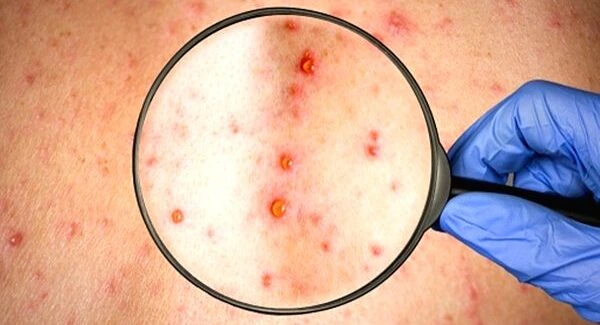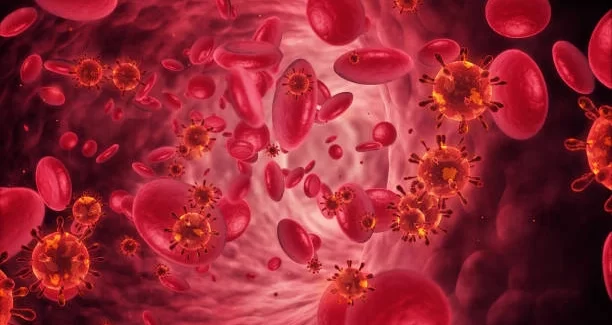What is Blood Cancer? Its Causes, Symptoms/Signs, Treatment & Prevention

Posted Date: February 7th, 2023
What is Blood Cancer?
Blood cancer refers to a group of cancers that affect the production and function of blood cells in the body. Blood cells are made in the bone marrow and include red blood cells, white blood cells and platelets. Blood cancers can interfere with the normal production and function of these cells, leading to symptoms such as fatigue, weakness, anemia, bleeding and increased risk of infections. Leukemia is a cancer of the white blood cells and is classified into four main types based on the type of white blood cell affected and the rate at which the cancer cells are multiplying. Lymphoma can develop in the lymph nodes, spleen and other organs. Myeloma can cause damage to bones, leading to pain, fractures and other symptoms. Early diagnosis and treatment of blood cancers is crucial for improving outcomes and survival rates.
What are Blood Cancer Types?
Blood cancer types include:
-
Leukemia: cancer of white blood cells
-
Lymphoma: cancer of the lymphatic system
-
Multiple myeloma: cancer of plasma cells
-
Hodgkin lymphoma: a type of lymphoma characterized by the presence of a specific type of cell, the Reed-Sternberg cell
-
Non-Hodgkin lymphoma: a type of lymphoma that does not involve the Reed-Sternberg cells
-
Myelodysplastic syndromes (MDS): a group of diseases in which the bone marrow produces an inadequate number of red blood cells, white blood cells and platelets.
-
Myeloproliferative neoplasms (MPN): a group of disorders characterized by the overproduction of one or more types of blood cells.
Know Causes of Blood Cancer:
The exact causes of blood cancer are not well understood, but there are several factors that may increase the risk, including:
-
Age: the risk of blood cancer increases with age.
-
Family history: having a family member with blood cancer can increase the risk.
-
Exposure to chemicals and radiation: exposure to certain chemicals and radiation can increase the risk of blood cancer.
-
Chronic infections: having a chronic viral or bacterial infection, such as hepatitis B or C, can increase the risk.
-
Immune system disorders: having a weakened immune system, such as from HIV/AIDS, can increase the risk.
-
Tobacco use: smoking or exposure to second-hand smoke can increase the risk.
-
Genetic mutations: certain genetic mutations, such as in the BRCA1 and BRCA2 genes, can increase the risk of blood cancer.
-
Previous cancer treatment: receiving radiation or chemotherapy for another cancer can increase the risk of developing blood cancer later in life.
What are Blood Cancer Sign and Symptoms?
Blood cancer signs and symptoms can vary depending on the type and stage of the disease, but some common ones include:
-
FatigueWeakness
-
Anemia
-
Bleeding and bruising easily
-
Recurrent infections
-
Pain or tenderness in the bones
-
Shortness of breath
-
Rapid heart rate
-
Loss of appetite
-
Night sweats
-
Unexplained weight loss
It is important to note that some of these symptoms may also be caused by other, non-cancerous conditions. A doctor should be consulted to determine the cause of these symptoms.
Blood Cancer Diagnosis & Treatment
Diagnosis of blood cancer typically involves a combination of medical history, physical exam and laboratory and imaging tests. These tests may include:
-
Complete blood count (CBC)
-
Blood chemistry tests
-
Bone marrow biopsy
-
Lumbar puncture (spinal tap)
-
CT scan, MRI, or PET scan
Based on the results of these tests, the doctor will determine the type and stage of the blood cancer and develop a treatment plan.
Treatment for blood cancer can vary depending on the type and stage of the disease, but may include:
-
Chemotherapy: using drugs to kill cancer cells
-
Radiation therapy & treatment: By using high-energy radiation therapy that can kill cancer cells
-
Stem cell transplant: replacing damaged bone marrow with healthy stem cells
-
Targeted therapy: using drugs that target specific proteins involved in cancer cell growth
-
Surgery: removing tumors or diseased tissue
The choice of treatment will depend on the type and stage of the blood cancer, as well as the patient’s overall health.
Blood cancer Precautions
To reduce the risk of developing blood cancer, it is recommended to:
-
Not to expose your body to chemicals and radiation
-
Stop smoking and also avoid exposure when other smoke or avoid second-hand smoke
-
Go for a healthy diet and good lifestyle, doing regular exercise/yoga and stress management
-
Get vaccinated and go against hepatitis B & C
-
Avoid longtime exposure to sunlight ray and use sunscreen cream
Limit alcohol consumption -
Always do safe sex to reduce the chance or risk of sexually transmitted infections
-
Have regular check-ups, especially if there is a family history of blood cancer.
It is important to remember that the risk of developing blood cancer cannot always be prevented, but adopting a healthy lifestyle can help reduce the risk and improve overall health.
Who are Blood cancer Specialist
Blood cancer specialists are medical doctors who have specialized training and expertise in diagnosing and treating blood cancers. They may include:
-
Hematologist: a doctor who specializes in blood disorders, including blood cancers
-
Hematologist-Oncologist: a doctor who specializes in both blood disorders and cancer
-
Medical Oncologist: a doctor who specializes in treating cancer with medications such as chemotherapy
-
Radiation Oncologist: a doctor who treat cancer with the special radiation therapy
-
Pathologist: a doctor who specializes in diagnosing diseases by analyzing tissues and body fluids
-
Stem Cell Transplant Specialist: a doctor who specializes in transplanting stem cells to treat blood cancer.
These specialists work together as a team to develop a personalized treatment plan for each patient, taking into account the type and stage of the blood cancer, as well as the patient’s overall health.
Blood cancer refers to a group of cancers that affect the production and function of blood cells in the body. Blood cells are made in the bone marrow and include red blood cells, white blood cells and platelets. Blood cancers can interfere with the normal production and function of these cells, leading to symptoms such as fatigue, weakness, anemia, bleeding and increased risk of infections. Leukemia is a cancer of the white blood cells and is classified into four main types based on the type of white blood cell affected and the rate at which the cancer cells are multiplying. Lymphoma can develop in the lymph nodes, spleen and other organs. Myeloma can cause damage to bones, leading to pain, fractures and other symptoms. Early diagnosis and treatment of blood cancers is crucial for improving outcomes and survival rates.
What are Blood Cancer Types?
Blood cancer types include:
-
Leukemia: cancer of white blood cells
-
Lymphoma: cancer of the lymphatic system
-
Multiple myeloma: cancer of plasma cells
-
Hodgkin lymphoma: a type of lymphoma characterized by the presence of a specific type of cell, the Reed-Sternberg cell
-
Non-Hodgkin lymphoma: a type of lymphoma that does not involve the Reed-Sternberg cells
-
Myelodysplastic syndromes (MDS): a group of diseases in which the bone marrow produces an inadequate number of red blood cells, white blood cells and platelets.
-
Myeloproliferative neoplasms (MPN): a group of disorders characterized by the overproduction of one or more types of blood cells.
Know Causes of Blood Cancer:
The exact causes of blood cancer are not well understood, but there are several factors that may increase the risk, including:
-
Age: the risk of blood cancer increases with age.
-
Family history: having a family member with blood cancer can increase the risk.
-
Exposure to chemicals and radiation: exposure to certain chemicals and radiation can increase the risk of blood cancer.
-
Chronic infections: having a chronic viral or bacterial infection, such as hepatitis B or C, can increase the risk.
-
Immune system disorders: having a weakened immune system, such as from HIV/AIDS, can increase the risk.
-
Tobacco use: smoking or exposure to second-hand smoke can increase the risk.
-
Genetic mutations: certain genetic mutations, such as in the BRCA1 and BRCA2 genes, can increase the risk of blood cancer.
-
Previous cancer treatment: receiving radiation or chemotherapy for another cancer can increase the risk of developing blood cancer later in life.
What are Blood Cancer Sign and Symptoms?
Blood cancer signs and symptoms can vary depending on the type and stage of the disease, but some common ones include:
-
FatigueWeakness
-
Anemia
-
Bleeding and bruising easily
-
Recurrent infections
-
Pain or tenderness in the bones
-
Shortness of breath
-
Rapid heart rate
-
Loss of appetite
-
Night sweats
-
Unexplained weight loss
It is important to note that some of these symptoms may also be caused by other, non-cancerous conditions. A doctor should be consulted to determine the cause of these symptoms.
Blood Cancer Diagnosis & Treatment
Diagnosis of blood cancer typically involves a combination of medical history, physical exam and laboratory and imaging tests. These tests may include:
-
Complete blood count (CBC)
-
Blood chemistry tests
-
Bone marrow biopsy
-
Lumbar puncture (spinal tap)
-
CT scan, MRI, or PET scan
Based on the results of these tests, the doctor will determine the type and stage of the blood cancer and develop a treatment plan.
Treatment for blood cancer can vary depending on the type and stage of the disease, but may include:
-
Chemotherapy: using drugs to kill cancer cells
-
Radiation therapy & treatment: By using high-energy radiation therapy that can kill cancer cells
-
Stem cell transplant: replacing damaged bone marrow with healthy stem cells
-
Targeted therapy: using drugs that target specific proteins involved in cancer cell growth
-
Surgery: removing tumors or diseased tissue
The choice of treatment will depend on the type and stage of the blood cancer, as well as the patient’s overall health.
Blood cancer Precautions
To reduce the risk of developing blood cancer, it is recommended to:
-
Not to expose your body to chemicals and radiation
-
Stop smoking and also avoid exposure when other smoke or avoid second-hand smoke
-
Go for a healthy diet and good lifestyle, doing regular exercise/yoga and stress management
-
Get vaccinated and go against hepatitis B & C
-
Avoid longtime exposure to sunlight ray and use sunscreen cream
Limit alcohol consumption -
Always do safe sex to reduce the chance or risk of sexually transmitted infections
-
Have regular check-ups, especially if there is a family history of blood cancer.
It is important to remember that the risk of developing blood cancer cannot always be prevented, but adopting a healthy lifestyle can help reduce the risk and improve overall health.
Who are Blood cancer Specialist
Blood cancer specialists are medical doctors who have specialized training and expertise in diagnosing and treating blood cancers. They may include:
-
Hematologist: a doctor who specializes in blood disorders, including blood cancers
-
Hematologist-Oncologist: a doctor who specializes in both blood disorders and cancer
-
Medical Oncologist: a doctor who specializes in treating cancer with medications such as chemotherapy
-
Radiation Oncologist: a doctor who treat cancer with the special radiation therapy
-
Pathologist: a doctor who specializes in diagnosing diseases by analyzing tissues and body fluids
-
Stem Cell Transplant Specialist: a doctor who specializes in transplanting stem cells to treat blood cancer.
These specialists work together as a team to develop a personalized treatment plan for each patient, taking into account the type and stage of the blood cancer, as well as the patient’s overall health.




